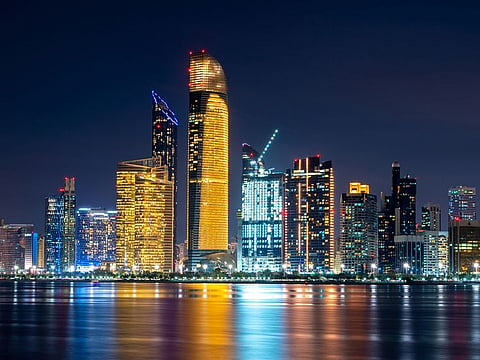Central bank forecasts UAE GDP to contract 5.2 per cent in 2020
UAE GDP growth for Q2 is estimated at -7.8 per cent year on year

Dubai: The UAE economy is expected to suffer a deeper contraction this year than originally estimated, with the Central Bank of UAE projecting a -5.2 per cent GDP growth for 2020.
According to the earlier forecasts by the central bank, GDP was projected to decline by 3.6 per cent this year.
In the UAE, many activities were shut down in March, and the situation further deteriorated in the second quarter, resulting in negative real GDP growth in Q2 estimated at -7.8 per cent year on year and - 9.3 per cent for the non-hydrocarbon sector.
As the economic activity is expected to improve subsequently, non-energy GDP contraction is projected at -4.5 per cent for the year 2020 as a whole. Meanwhile, employment declined on average in the second quarter, while marking almost a full recovery in June 2020.
“As a regional trade, tourism and transportation hub, the UAE economy was hit by the general ban on travel, while manufacturing production shrunk due to supply chain disruptions, limited export opportunities and subdued domestic demand,” the central bank said in its Quarterly Economic Review for Q2, 2020.
Third quarter outlook
According to the central bank report, the third quarter would register a milder contraction of the non-hydrocarbon GDP that could linger, albeit at a much milder pace, in the fourth quarter, assuming the virus is finally contained. The non-energy growth is projected by CBUAE at -4.5 per cent for the year 2020 as a whole due to the adverse implications of the Covid-19 on economic activity and sentiments, reflected by PMI [Purchasing Managers’ Index], and the slowdown in credit growth. The reports noted that the decline in employment across the UAE, would have further adverse implications on demand.
The central bank expects credit growth slowdown in the third quarter and to start recovering slowly after that. While a further drop of real estate prices are expected in the third quarter before moderating in the last quarter of the year. Following the drop in employment in the second quarter, a recovery is expected by the end of the third quarter to further improve in the second half of 2020.
“Being an oil exporting and open economy, the UAE is likely to feel the fallback from reduced global demand for oil as well non-oil exports, while tourism and related services, particularly hospitality and retail trade were severely affected. In addition, Foreign Direct Investment (FDI) is assumed to fall due to the deterioration in investors’ sentiments,” the report said.
The report notes that the recovery of economic sentiment will hinge on the extent of the policy support measures. The enhanced Targeted Economic Support Scheme (TESS) adopted by CBUAE and the economic stimulus packages announced by both local and federal governments are likely to boost the nonhydrocarbon activities, real estate prices, employment and credit growth with a positive impact on the overall sentiment, once the virus risks are under control.
Inflation
CPI inflation remained negative at –2.3% in the second quarter, driven by negative inflation in non-tradables (–3.9%), owing to the decline in rents and fuel prices, subdued domestic demand, and some exchange rate appreciation vs. the currencies of the UAE’s main trading partners. Bank deposits increased year on year by 5.2 per cent led by an increase in GREs [Government Related Entities] and private sector deposits, while credit grew by 5.8 per cent underpinned by healthy financial soundness indicators and supported by the enhanced Targeted Economic Support Scheme (TESS) which was expanded by the Central Bank in early April.









